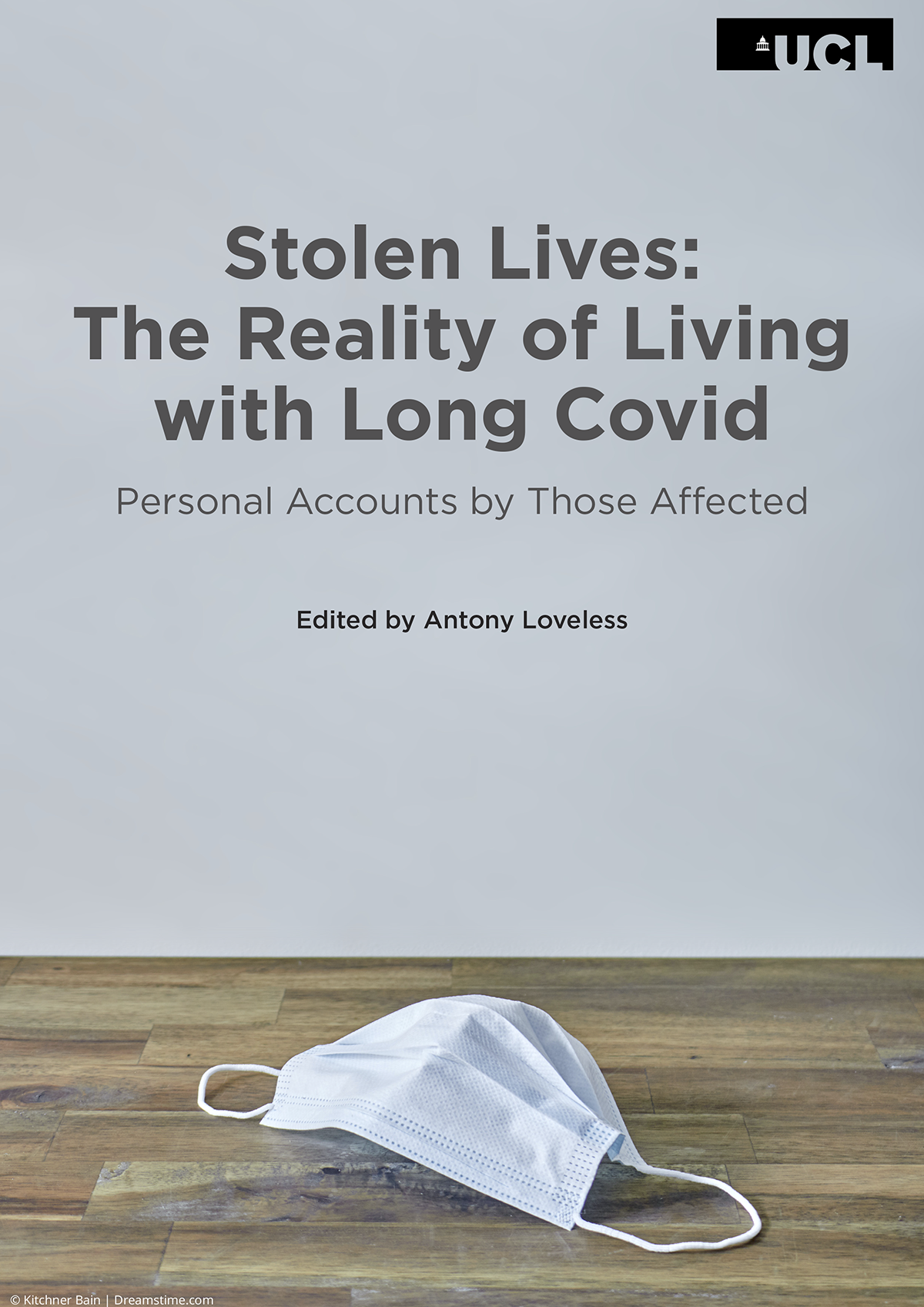Long Covid is affecting an estimated two million people in the UK; however, both the general population and the UK government have continued to overlook its impacts. This eBook sheds light on the life-changing condition
Long-term conditions, such as diabetes, arthritis and heart disease, account for the lion’s share of a country’s disease burden and healthcare use. However, their management, particularly over the longer term, tends to be neglected in funding, research, or clinical practice. Enter stage left Long Covid, affecting an estimated two million people in the UK: a new, post-infectious condition with a broad definition, unclear mechanisms, and evidence-based treatments yet to be determined. As well as facing some of the same challenges as before the pandemic, Long Covid also offers opportunities to change perceptions and approaches to long-term conditions.
As with any area of healthcare, in both research and clinical care, we should be guided by people with lived experience, their carers, the public, and clinical and academic experts, but this has not always happened historically. In the case of Long Covid, patients not only coined the term and helped to define the disease; they have tirelessly continued to advocate for “recognition, research, and rehabilitation” from the early pandemic. They have shown experts that future pandemic planning should involve greater consideration of longer-term effects and the patient voice.
STIMULATE-ICP (Symptoms, Trajectory, Inequalities and Management: Understanding Long-COVID to Address and Transform Existing Integrated Care Pathways), funded by the National Institute for Health and Social Care Research, is a two-year research effort to learn more and do more for people with Long Covid. It has involved universities, hospitals, industry, third-sector, policymakers, and patient organisations from around England. Within the STIMULATE-ICP study, there is an 11-strong patient and public involvement panel, which has informed the research, from grant application through to implementation and dissemination of findings.
As the study progressed, it became clear that beyond those with lived experience informing our research, we needed to document their rich, lived experience. This book represents that ideal, through the joint efforts of eleven people with Long Covid, sharing their anguish and aspirations. These accounts are part of the research process. They are also part of the historic record of our health systems’ greatest challenge in the last century: the COVID-19 pandemic. I believe this work can inform learning and care improvement of Long Covid and long-term conditions.
Protecting patients and personal accounts
A couple of points of order before we begin. First, throughout this eBook, if you see an asterisk next to someone’s name, it means we have changed their identity to protect their privacy. In such cases, if a photo has been included, it will be a metaphor chosen by them to represent their lives before/after contracting Long Covid. Secondly, almost everyone is familiar with the 2020 pandemic, caused by severe acute respiratory syndrome coronavirus 2 (SARS-CoV-2), a strain of coronavirus that causes COVID-19. In this eBook, we use various commonly used alternatives, such as Covid; Covid 19; Covid-19 and COVID-19, but however they are used, they are shorthand for SARS-Cov-2.
This brings us nicely to Long Covid.

What is Long Covid?
Current National Institute for Health and Care Excellence (NICE) guidelines define Long Covid as any new or ongoing symptoms that last for four weeks or more after the start of acute Covid-19. There are differing opinions on the proportion of those who experience Long Covid after developing Covid-19, and numbers range from 5% to 50%.
However, the Office of National Statistics (ONS) estimates that, as of November 2022, around 2.1 million people have been living with Long Covid for more than four weeks; of those, 1.1 million have been living with Long Covid for at least a year, and a further 507,000 have been living with Long Covid for at least two years. To put things into perspective, Multiple Sclerosis is thought to affect 130,000 people in the UK.
Researchers have identified 203 symptoms associated with Long Covid, affecting every organ system in the body. NICE lists the most common symptoms as; fatigue, dizziness, chest pain, cognitive impairment, anxiety, and depression. Long Covid affects many areas of sufferers’ lives, not only the physical symptoms and debilities but relationships, work, finances, self-image, mental health and emotional well-being. Although Long Covid is a new condition, with little information available to sufferers or clinicians, a recent review of all Long Covid research states, “Long COVID is a multisystemic illness encompassing ME/CFS, dysautonomia, impacts on multiple organ systems, and vascular and clotting abnormalities. It has already debilitated millions of individuals worldwide, and that number is continuing to grow. On the basis of more than two years of research on Long COVID and decades of research on conditions such as ME/CFS, a significant proportion of individuals with long COVID may have lifelong disabilities if no action is taken. Diagnostic and treatment options are currently insufficient, and many clinical trials are urgently needed to rigorously test treatments that address hypothesized underlying biological mechanisms, including viral persistence, neuroinflammation, excessive blood clotting and autoimmunity”. Whilst some people recover well from Long Covid with time, many do not and there remains much uncertainty around the condition.
Efforts to try and understand Long Covid have been made by researchers, scientists, and clinicians. However, patient experience steers this research, and it is important to give those living with Long Covid a voice. The STIMULATE-ICP research study has patient and public involvement (PPI) at its heart, looking at inequalities in healthcare, including access, treatment, and outcomes for those with Long Covid.
We have seen many grassroots organizations emerge, founded, and run by those with Long Covid. These organizations have done outstanding work advocating for recognition of, and research into, Long Covid; we’ve also seen people with Long Covid produce short films, poems, and blogs about their struggles, whilst others have advocated for more recognition by speaking out in the media. Despite fatigue, pain, and how hard it can be to get things done, they have raised their voices and demanded to be heard. This eBook contains bravely contributed personal accounts of the STIMULATE-ICP study’s PPI group and their experiences of living with Long Covid; they have used their scarce and precious energy to educate and help others with the condition.

Chapter One: Medical Experiences
There is no test specifically to diagnose Long Covid; it is a condition diagnosed after medical tests to eliminate other possible causes for the patient’s presenting symptoms. However, that’s easier said than done, and if we learned anything about the wider medical community during the Covid-19 Pandemic, it was its overall response to symptoms that they couldn’t immediately identify an underlying medical cause for. Sufferers of other chronic illnesses, such as Myalgic Encephalomyelitis/Chronic Fatigue Syndrome (ME/CFS) and Postural Orthostatic Tachycardia Syndrome (POTS), have, for years, been stigmatised and told that their symptoms are “in their head” or that they’re purely psychological in nature. This is especially true for women who complain of such illnesses.
Unsurprisingly, we’ve seen the same happen to those with Long Covid. Often – especially in the case of those who developed the disease early on in the pandemic – those who went to Accident and Emergency (A&E) or their GPs complaining of symptoms were told that there was nothing wrong with them, or that their symptoms were a manifestation of anxiety. Clinicians would often insist on these diagnoses and would usually add them to the patient’s medical record, potentially jeopardising their future care. For all our scientific advancement as a society, a large number of clinicians choose to question the validity of their patient’s symptoms and their mental health rather than acknowledge that they could be suffering from an as-yet unknown disease which cannot be detected in standard tests. Some patients with Long Covid have even been admitted to psychiatric wards due to their symptoms.
Several members of the STIMULATE-ICP study’s PPI group, have spoken about difficulties faced in navigating the medical system and some of the obstacles and challenges they experienced when trying to obtain a definitive diagnosis.
Claire, specialist nurse
Claire, 53, is a specialist nurse who caught Covid-19 in December 2020 and has had Long Covid since, having lost her job as a result of the illness. She lives with her partner, who also has Long Covid, and her daughter, in Essex. She says:

Many in the STIMULATE-ICP PPI group have reported poor experiences while trying to find out what was wrong with them due to their clinicians’ disbelief or minimising of the patients’ reported Long Covid symptoms. These interactions deny the reality of the patient’s experiences and can lead to poorer health outcomes. They also damage the patient’s trust in their doctors, as they may fear reprisals if they challenge the medical professional’s assertions.
Imagine that you couldn’t walk, were in pain all the time, and suspected you’d broken your leg; imagine you had to walk six miles to get to a doctor, causing even more pain and doing more damage to your already mangled limb; imagine that your doctor refused to x-ray it, and told you that your pain and deformed leg were due to anxiety, not a broken bone; now, imagine that you paid privately for an x-ray, which clearly showed a broken bone, but you were told that despite this, your difficulties were unexplained, and were therefore attributed to psychiatric problems.
Instead of a broken leg, now imagine that you have Long Covid. Imagine every interaction with anyone or anything makes you feel so debilitated that you can barely think or speak afterwards. Imagine sky- high blood pressure, the crippling, utter exhaustion of fatigue, severe headaches that last for weeks, and not being able to express yourself because your brain won’t work properly. Each time you try to get help, you’re shut down, minimised, and accused of fabricating illness or being mentally ill; that is exactly my experience. I was minimised, ignored and gaslighted due to good-old-fashioned misogyny and my ‘daring’ to question my consultant when my condition fell outside of the limits of his knowledge.
I was in good health when I caught Covid in January 2021. I felt I was starting to get better in late February, but in March, my health took a turn for the worse; I had hypertension (high blood pressure), tachycardia (fast heart rate), severe headaches, hyperglycaemia (high blood sugar), black urine and diarrhoea; I was also collapsing and fainting a lot, and having episodes of facial and limb weakness, with difficulty speaking and understanding. I told my GP that I felt like I was having transient ischemic attacks (TIAs), that the ‘brain fog’ felt more like a brain injury.
In March 2021, my partner called 999 and paramedics attended me for a hypertensive crisis. Only telephone appointments were available with my GP, so I told him again about the hypertension, suspected TIAs and hyperglycaemia and requested an urgent neurology referral for further investigation. I also requested a gastroenterology referral to investigate the diarrhoea – I was to lose 40 kilograms of weight (that’s around six-and-a-half stone) over the next few months. Even though I was taking rehydration salts and Imodium every day, the diarrhoea continued, often as much as 20 times a day. My faecal calprotectin levels were above 1800 μg/mg (the normal range is up to 50 μg/mg.) My GP prescribed medications but didn’t refer me to any specialists as he said anxiety was causing all of my symptoms.
It wasn’t until October 2021 that I saw my GP face- to-face. My Long Covid Clinic physiotherapist was concerned about my heart rate and very high blood pressure, so she made the appointment and took me there. Whilst waiting to be let into the surgery, I collapsed on the doorstep; I’d been standing for about three minutes when I felt very sick and faint, and my legs just went from under me. I was wheeled into the doctor’s office on a wheelchair and they checked my vital signs; these were all way out of normal range, but most settled within about 30 minutes while I was at the surgery.
My GP, having witnessed my collapse and seen my blood pressure variability and heart rate so high, then proceeded to tell me that all my symptoms were probably caused by anxiety. I’d had mild to moderate anxiety and depression in the past, but even though I told him this was very different, he just shrugged and repeated, “it’s just anxiety”.
My GP then ‘forgot’ to refer me to neurology, despite my reports of continuing severe neurological and cognitive symptoms (including fainting, collapses, difficulty speaking, reading, writing, understanding, transient limb weakness and facial numbness etc.), so in December 2021, I paid privately to see a consultant neurologist; he organised a brain MRI for me, which clearly showed I’d had an infarct (stroke) in my right parietal lobe.
However, at my second appointment with the private neurologist, after discussing the MRI findings, I was told that there was no physical reason for the neurological symptoms I was describing. When I asked what could possibly be causing these extremely debilitating and worrying neurological problems, he seemed suddenly annoyed and frustrated with me. I left the appointment feeling like I’d done something wrong, but I couldn’t understand what. I soon found out; I’d asked him a question outside of his medical knowledge, and the neurologist’s letter to my GP advised him to refer me ‘urgently’ to psychiatry.
My GP didn’t feel the need to refer me to a psychiatrist, but the damage was done for me – the trust I’d always had in doctors was gone. I’d used every ounce of energy and brainpower to try and find out what the hell was wrong with me, and the very professionals I was turning to for help were basically calling me mad, insinuating that I was making it up or exaggerating.
By contrast, when I eventually saw the gastroenterology consultant, he was fantastic.
My colonoscopy didn’t show anything abnormal, but based on my reported symptoms and weight loss, he referred me for further investigations and scans, which showed up other issues. I have now had surgery and been treated for these, and it’s made a real difference in the quality of my daily life.

Lucia, writer and university lecturer
Lucia, 38, is a writer and university lecturer. She lives in Edinburgh, with her partner and carer, Michael. She contracted Covid and Long Covid in April 2020. She says, Medical professionals told me my illness was likely psychosomatic, that I was anxious. A consultant called me a “rather anxious young woman”, misattributing my age in his report, while a senior consultant shared that “many women choose to stay unwell” so as to remove themselves from the pressures of their everyday life when all I wanted was to dive right back into that life. When my GP sent an ambulance to my house because of exacerbated symptoms, one of the paramedics made a comment that “we’re seeing an epidemic of paranoia” as well.
Soon enough, I learned that conditions such as mine are sadly more often than not met with scepticism. This type of misguided response causes considerable distress in patients, even harm, in a profession that has sworn to primo non nocere or, ‘First, do no harm.’ It is obvious that a paradigm shift is needed in terms of how we perceive chronic illness and disability. This is a responsibility that doesn’t only fall on the medical field but on society as a whole.
Jane*, a freelancer from Yorkshire
Jane*, 32, is a freelancer from Yorkshire. She contracted Covid and Long Covid in March 2020. She says;
My severe illness has made me so disabled I can no longer walk, and no longer work. I’m too ill to talk to friends regularly or to socialise. I spend almost my entire life on my kitchen floor – I’m not well enough to go up the stairs or go outside. All this and the doctors still act like I’m a time waster, whining about a minor cold. When I was honest about how ill I was or how desperate I was to anyone – I was treated like dirt, told I was anxious or crazy or depressed. The only help I was offered was talking therapy over and over again.


